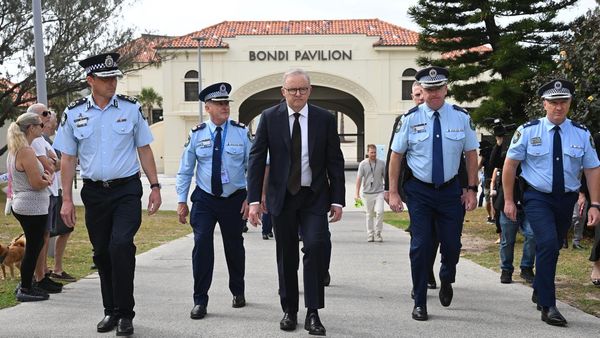Australians have been promised a fundamental overhaul of environmental laws after a major report detailing shocking declines in the health of native ecosystems.
Environment Minister Tanya Plibersek says people will be confronted to learn how poorly the environment is doing and there must be a concerted effort to arrest its decline and repair the vast damage done.
She says Labor will respond to the scathing Samuel review of national environmental laws - delivered under the previous government - by year's end.
"We'll then develop new environmental legislation for 2023," she told the National Press Club on Tuesday.
"What the environment needs is a changed system. That's the message from the Samuel review. That's the message from the State of the Environment report.
"Without structural change we'll be resigning ourselves to another decade of failure without the tools we need to arrest our decline."
She also committed Labor to affording some level of protection to 30 per cent of Australia's land and oceans by 2030.
The SOL report, which the former Morrison government declined to release before the last election, found Australia's environment is sick and getting sicker.
At least 19 ecosystems are showing signs of collapse or near collapse.
"Overall, the state and trend of the environment of Australia are poor and deteriorating," it says.
It details "abrupt" changes in ecological systems over the past five years with global warming adding a devastating new layer to an accumulation of threats.
The result is a growing list of species trying to survive in shrinking and degraded ecosystems being ineffectively managed with too little money.
"Our inability to adequately manage pressures will continue to result in species extinctions and deteriorating ecosystem condition, which are reducing the environmental capital on which current and future economies depend."
One of the report's three chief authors, former CSIRO research director Dr Ian Cresswell, says an absence of national leadership and investment has cost the nation dearly and must stop.
"We're going to lose the Australia we grew up with for future generations, if we don't truly start dealing with some of the environmental problems," he said.
The report says Australia lacks a framework to properly manage the environment and points to reliance on a jumble of systems across different tiers of government.
The number of new species listed as threatened, or up-listed to a higher category, has increased eight per cent since 2016 and will jump again due to the Black Summer bushfires, it warns.
Despite this, monitoring of threatened species and communities is "mostly inadequate" with 70 per cent of the latter not monitored at all.
Meanwhile, a staggering 7.7 million hectares of habitat for land-based threatened species was cleared between 2000 and 2017 but almost all of it wasn't assessed under federal laws.
Ms Plibersek accused the former government of years' of wilful neglect, failing to keep promises, brutal funding cuts and support for unworthy laws.
"The previous minister Sussan Ley received (this report) before Christmas but chose to keep it hidden, locked away until after the federal election," she said.
"And when you read it, you'll know why. It is a confronting read. Australians deserve the truth."
A spokesperson for Ms Ley, who is now deputy opposition leader, say the report was dealt with within the required statutory timeframe.
Its authors say she could have released it at any time but chose not to.
One, marine ecology professor Emma Johnston, said previous reports talked about climate impacts mostly in the future tense.
"But in this report we document wide-scale impacts of climate-related extreme events across the nation and that has compounded existing threats - land clearing, invasive species, pollution."
The report also charts the drop in federal spending on biodiversity as risks increased.
Expenditure ran at $400-$500 million per year from 2010, dipped below $300 million in 2018-19 and has been under $400 million thereafter.
The report was written by 37 independent, expert authors.







